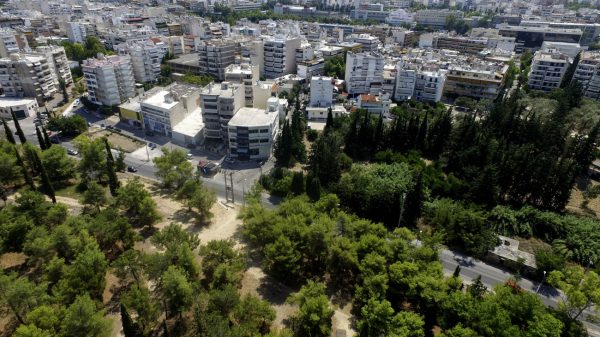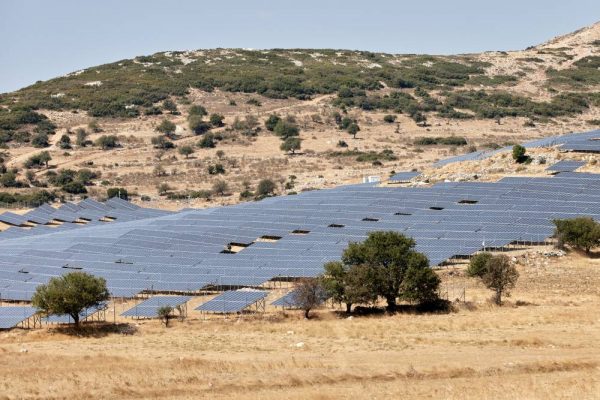
The new Minister of National Economy and Finance Kostis Hatzidakis will have a full discussion with the Governor of the Bank of Greece Yiannis Stournaras this afternoon.
The focus of the meeting between the two men, the first since the last elections, is expected to be on all the current issues concerning the Greek economy and the domestic financial system.
The central banker will brief the government’s new chief of economic staff on the state of the industry and the challenges it faces in the coming years.
Investment grade
It will also underline the importance of recovering the investment grade from the Greek public.
As he had emphasized in his last report, this is the most basic challenge of the policy that the government is asked to carry out.
And this is because the exit from the “garbage” category after 13 years, will contribute decisively to the following:
- Firstly, it will strengthen the resilience of the Greek economy to exogenous disturbances and episodes of volatility in international markets
- Second, it will reduce the cost of raising capital for the public and private sectors
- Third, it will facilitate the management of public debt
- Fourth, it will give impetus to investments and, by extension, to growth
The challenges for banks
Hatzidakis and Stournaras are expected to discuss the management of bad loans from now on.
NPL ratios may have fallen to single-digit levels, but they still remain at a distance from the European average.
In addition, a series of securitizations of systemic groups have not yet been completed, while the insecurities in the smaller credit institutions will have to be addressed immediately, in view of the creation of the fifth pole in the sector, through the attempted merger of Attica Bank and Pancretan Bank.
According to the domestic monetary authority, the ongoing rise in European interest rates, combined with high inflation, may cause a possible deterioration in the quality of banks’ assets.
“Heracles”
In this context, the Ministry of Finance is examining the activation of a third round of the “Heracles” state guarantee program to facilitate the above transactions, which will significantly speed up the European convocation.
At the same time, the Bank of Greece in its last report had highlighted the high percentage of private debt in relation to GDP, which may be off the banks’ balance sheets, but should be restructured in an effective way by the management companies.
Besides, Mr. Stournaras is expected to refer to the significant strengthening of the organic results of the largest banks, basically as a result of the tightening of monetary policy by the ECB and the reduction of credit risk after the consolidation of their balance sheets.
However, he believes that challenges remain related to the need to maintain strong profitability and further reduce non-performing loans, while deferred tax liabilities (DTCs) continue to make up a large part of banks’ capital.
According to the latest data from the Bank of Greece, the Common Equity Tier 1 (CET1 ratio) on a consolidated basis decreased to 13.4% in March 2023 from 14.4% in December 2022, as well as the Total Capital Ratio (TCR) to 16.5% from 17.4% in December 2022.
Both remained below the respective averages at the eurozone level.
Chronic weaknesses
Finally, Mr. Stournaras will in all probability present to Mr. Hatzidakis the chronic weaknesses of the Greek economy, which despite the progress of the last five years, still ranks relatively low in the international indices of structural competitiveness.
Pathogens of this kind, which limit competitiveness and create disincentives for investment, include the following:
- Delays in the administration of justice
- The bureaucracy and inefficiency that still exists in some sectors of the State
- The lag in basic infrastructure
- The insufficient fight against widespread tax evasion
- Quasi-oligopolistic conditions in specific markets for goods and services
Distortions in the energy market
Additional examples of inherent weaknesses are, according to the Bank of Greece, the low participation of women and young people in the labor market in combination with the unfavorable demographic trend, the increased risk of poverty and social exclusion, significant regional inequalities, deficiencies in the so-called ” triangle of knowledge” (education – research – innovation) and the high dependence of the Greek economy on fossil fuels.
Latest News

WTTC: Travel & Tourism to Create 4.5M New Jobs in EU by 2035
This year, international visitor spending is set to reach 573 billion euros, up by more than 11% year-on-year

IMF: US Tariffs Shake Global Economy, Outlook Downbeat
IMF slashes global growth forecast to 2.8% as U.S. tariffs create uncertainty and ‘negative supply shock

First Step Towards New Audiovisual Industry Hub in Drama
The project is set to contribute to the further development of Greece’s film industry and establish Drama as an audiovisual hub in the region

Airbnb Greece – Initial CoS Ruling Deems Tax Circular Unlawful
The case reached the Council of State following annulment applications filed by the Panhellenic Federation of Property Owners (POMIDA)

Mitsotakis Unveils €1 Billion Plan for Housing, Pensioners, Public investments
Greek Prime Minister Kyriakos Mitsotakis has announced a new set of economic support measures, worth 1 billion euros, aiming to provide financial relief to citizens.

Alter Ego Ventures Invests in Pioneering Gaming Company ‘Couch Heroes’
Alter Ego Ventures' participation in the share capital of Couch Heroes marks yet another investment by the Alter Ego Media Group in innovative companies with a focus on technology.

Corruption Still Plagues Greece’s Driving Tests
While traffic accidents continue to claim lives on Greek roads daily, irregularities and under-the-table dealings in the training and testing of new drivers remain disturbingly widespread

Pope Francis Died of Stroke and Heart Failure Vatican Confirms
As news of the official cause of death spread, tributes poured in from across the globe. The 1.4 billion-member Catholic Church is united in grief, remembering a pope who championed inclusion, justice, and compassion

Increase in Both Museum Visits, Revenues for 2024
As expected, the Acropolis was the top archeological site in the country, followed by Sounion, Mycenae, the ancient theater of Epidaurus, and Vergina in northern Greece

Where Greece’s Tourists Come From: A Look at 2025’s Top Visitor Markets
The United Kingdom continues to hold the top spot as the largest source of incoming tourism, with 5.6 million seats booked for Greece this summer — up 2.2% from last year. This accounts for 20% of all international air traffic to Greece

















![Ξενοδοχεία: Μεγάλο το ενδιαφέρον για επενδύσεις στην Ελλάδα – Η θέση της Αθήνας [γραφήματα]](https://www.ot.gr/wp-content/uploads/2025/03/Athens-hotels-90x90.jpg)













![Ελάχιστο ετήσιο εισόδημα αυτοαπασχολούμενων [Β’ Μέρος]](https://www.ot.gr/wp-content/uploads/2025/02/taxpayers-600x337.jpg)









 Αριθμός Πιστοποίησης
Αριθμός Πιστοποίησης